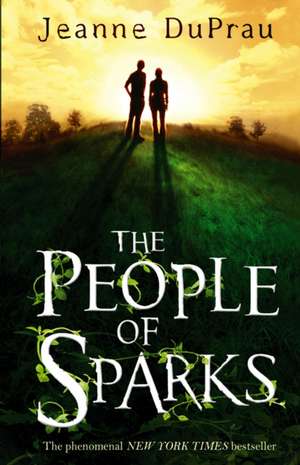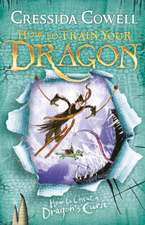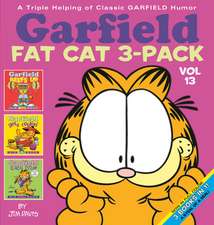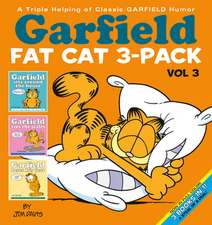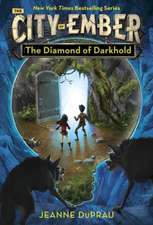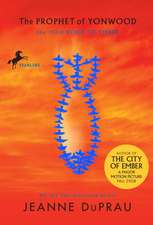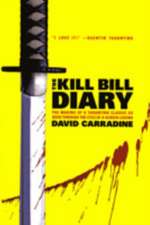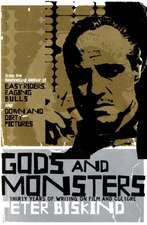The People of Sparks
Autor Jeanne Duprauen Limba Engleză Paperback – 2 feb 2006
| Toate formatele și edițiile | Preț | Express |
|---|---|---|
| Paperback (2) | 43.96 lei 23-34 zile | +17.70 lei 6-10 zile |
| Yearling Books – 30 apr 2004 | 52.96 lei 24 ore | |
| Penguin Random House Children's UK – 2 feb 2006 | 43.96 lei 23-34 zile | +17.70 lei 6-10 zile |
| Hardback (2) | 132.94 lei 3-5 săpt. | |
| Perfection Learning – 31 mar 2005 | 132.94 lei 3-5 săpt. | |
| Bloomsbury Publishing – 31 mar 2005 | 132.94 lei 3-5 săpt. |
Preț: 43.96 lei
Preț vechi: 51.58 lei
-15% Nou
Puncte Express: 66
Preț estimativ în valută:
8.41€ • 8.78$ • 6.95£
8.41€ • 8.78$ • 6.95£
Carte disponibilă
Livrare economică 28 martie-08 aprilie
Livrare express 11-15 martie pentru 27.69 lei
Preluare comenzi: 021 569.72.76
Specificații
ISBN-13: 9780552552394
ISBN-10: 0552552399
Pagini: 352
Dimensiuni: 129 x 199 x 27 mm
Greutate: 0.25 kg
Editura: Penguin Random House Children's UK
Locul publicării:United Kingdom
ISBN-10: 0552552399
Pagini: 352
Dimensiuni: 129 x 199 x 27 mm
Greutate: 0.25 kg
Editura: Penguin Random House Children's UK
Locul publicării:United Kingdom
Notă biografică
Jeanne DuPrau has been a teacher, an editor, and a technical writer. The People of Sparks is the sequel to The City of Ember and her second novel. She lives in Menlo Park, CA, where she keeps a big garden and a small dog.
From the Hardcover edition.
From the Hardcover edition.
Extras
Chapter 1
What Torren Saw
Torren was out at the edge of the cabbage field that day, the day the people came. He was supposed to be fetching a couple of cabbages for Dr. Hester to use in the soup that night, but, as usual, he didn't see why he shouldn't have some fun while he was at it. So he climbed up the wind tower, which he wasn't supposed to do because, they said, he might fall or get his head sliced off by the big blades going round and round.
The wind tower was four-sided, made of boards nailed one above the next like the rungs of a ladder. Torren climbed the back side of it, the side that faced the hills and not the village, so that the little group of workers hoeing the cabbage rows wouldn't see him. At the top, he turned around and sat on the flat place behind the blades, which turned slowly in the idle summer breeze. He had brought a pocketful of small stones up with him, planning on some target practice: he liked to try to hit the chickens that rummaged around between the rows of cabbages. He thought it might be fun to bounce a few pebbles off the hats of the workers, too. But before he had even taken the stones from his pocket, he caught sight of something that made him stop and stare.
Out beyond the cabbage field was another field, where young tomato and corn and squash plants were growing, and beyond that the land sloped up into a grassy hillside dotted, at this time of year, with yellow mustard flowers. Torren saw something strange at the top of the hill. Something dark.
There were bits of darkness at first-for a second he thought maybe it was a deer, or several deer, black ones instead of the usual light brown, but the shape was wrong for deer, and the way these things moved was wrong, too. He realized very soon that he was seeing people, a few people at first and then more and more of them. They came up from the other side of the hill and gathered at the top and stood there, a long line of them against the sky, like a row of black teeth. There must have been a hundred, Torren thought, or more than a hundred.
In all his life, Torren had never seen more than three or four people at a time arrive at the village from elsewhere. Almost always, the people who came were roamers, passing through with a truckload of stuff from the old towns to sell. This massing of people on
the hilltop terrified him. For a moment he couldn't move. Then his heart started up a furious pounding, and he scrambled down off the wind tower so fast that he scraped his hands on the rough boards.
"Someone's coming!" he shouted as he passed the workers. They looked up, startled. Torren ran at full speed toward the low cluster of brown buildings at the far end of the field. He turned up a dirt lane, his feet raising swirls of dust, and dashed through the gate in the wall and across the courtyard and in through the open door, all the time yelling, "Someone's coming! Up on the hill! Auntie Hester! Someone's coming!"
He found his aunt in the kitchen, and he grabbed her by the waist of her pants and cried, "Come and see! There's people on the hill!" His voice was so shrill and urgent and loud that his aunt dropped the spoon into the pot of soup she'd been stirring and hurried after him. By the time they got outside, others from the village were leaving their houses, too, and looking toward the hillside.
The people were coming down. Over the crest of the hill they came and kept coming, dozens of them, more and more, like a mudslide.
The people of the village crowded into the streets. "Get Mary Waters!" someone called. "Where's Ben and Wilmer? Find them, tell them to get out here!"
Torren was less frightened now that he was surrounded by the townspeople. "I saw them first," he said to Hattie Carranza, who happened to be hurrying along next to him. I was the one who told the news."
"Is that right," said Hattie.
"We won't let them do anything bad to us," said Torren. "If they do, we'll do something worse to them. Won't we?"
But she just glanced down at him with a vague frown and didn't answer.
The three village leaders–Mary Waters, Ben Barlow, and Wilmer Dent–had joined the crowd by now and were leading the way across the cabbage field. Torren kept close behind them. The strangers were getting nearer, and he wanted to hear what they would say. He could see that they were terrible-looking people. Their clothes were all wrong–coats and sweaters, though the weather was warm, and not nice coats and sweaters but raggedy ones, patched, unraveling, faded, and grimy. They carried bundles, all of them: sacks made of what looked like tablecloths or blankets gathered up and tied with string around the neck. They moved clumsily and slowly. Some of them tripped on the uneven ground and had to be helped up by others.
In the center of the field, where the smell of new cabbages and fresh dirt and chicken manure was strong, those at the front of the crowd of strangers met the village leaders. Mary Waters stepped to the front, and the villagers crowded up behind her. Torren, being
small, wriggled between people until he had a good view. He stared at the ragged people. Where were their leaders? Facing Mary were a girl and a boy who looked only a little older than he was himself. Next to them was a bald man, and next to him a sharp-eyed woman holding a small child. Maybe she was the leader.
But when Mary stepped forward and said, "Who are you?" it was the boy who answered. He spoke in a clear, loud voice that surprised Torren, who had expected a pitiful voice from someone so bedraggled. "We come from the city of Ember," the boy said. "We left there because our city was dying. We need help."
Mary, Ben, and Wilmer exchanged glances. Mary frowned. "The city of Ember? Where's that? We've never heard of it. "
The boy gestured back the way they had come, to the east. "That way," he said. "It's under the ground."
From the Hardcover edition.
What Torren Saw
Torren was out at the edge of the cabbage field that day, the day the people came. He was supposed to be fetching a couple of cabbages for Dr. Hester to use in the soup that night, but, as usual, he didn't see why he shouldn't have some fun while he was at it. So he climbed up the wind tower, which he wasn't supposed to do because, they said, he might fall or get his head sliced off by the big blades going round and round.
The wind tower was four-sided, made of boards nailed one above the next like the rungs of a ladder. Torren climbed the back side of it, the side that faced the hills and not the village, so that the little group of workers hoeing the cabbage rows wouldn't see him. At the top, he turned around and sat on the flat place behind the blades, which turned slowly in the idle summer breeze. He had brought a pocketful of small stones up with him, planning on some target practice: he liked to try to hit the chickens that rummaged around between the rows of cabbages. He thought it might be fun to bounce a few pebbles off the hats of the workers, too. But before he had even taken the stones from his pocket, he caught sight of something that made him stop and stare.
Out beyond the cabbage field was another field, where young tomato and corn and squash plants were growing, and beyond that the land sloped up into a grassy hillside dotted, at this time of year, with yellow mustard flowers. Torren saw something strange at the top of the hill. Something dark.
There were bits of darkness at first-for a second he thought maybe it was a deer, or several deer, black ones instead of the usual light brown, but the shape was wrong for deer, and the way these things moved was wrong, too. He realized very soon that he was seeing people, a few people at first and then more and more of them. They came up from the other side of the hill and gathered at the top and stood there, a long line of them against the sky, like a row of black teeth. There must have been a hundred, Torren thought, or more than a hundred.
In all his life, Torren had never seen more than three or four people at a time arrive at the village from elsewhere. Almost always, the people who came were roamers, passing through with a truckload of stuff from the old towns to sell. This massing of people on
the hilltop terrified him. For a moment he couldn't move. Then his heart started up a furious pounding, and he scrambled down off the wind tower so fast that he scraped his hands on the rough boards.
"Someone's coming!" he shouted as he passed the workers. They looked up, startled. Torren ran at full speed toward the low cluster of brown buildings at the far end of the field. He turned up a dirt lane, his feet raising swirls of dust, and dashed through the gate in the wall and across the courtyard and in through the open door, all the time yelling, "Someone's coming! Up on the hill! Auntie Hester! Someone's coming!"
He found his aunt in the kitchen, and he grabbed her by the waist of her pants and cried, "Come and see! There's people on the hill!" His voice was so shrill and urgent and loud that his aunt dropped the spoon into the pot of soup she'd been stirring and hurried after him. By the time they got outside, others from the village were leaving their houses, too, and looking toward the hillside.
The people were coming down. Over the crest of the hill they came and kept coming, dozens of them, more and more, like a mudslide.
The people of the village crowded into the streets. "Get Mary Waters!" someone called. "Where's Ben and Wilmer? Find them, tell them to get out here!"
Torren was less frightened now that he was surrounded by the townspeople. "I saw them first," he said to Hattie Carranza, who happened to be hurrying along next to him. I was the one who told the news."
"Is that right," said Hattie.
"We won't let them do anything bad to us," said Torren. "If they do, we'll do something worse to them. Won't we?"
But she just glanced down at him with a vague frown and didn't answer.
The three village leaders–Mary Waters, Ben Barlow, and Wilmer Dent–had joined the crowd by now and were leading the way across the cabbage field. Torren kept close behind them. The strangers were getting nearer, and he wanted to hear what they would say. He could see that they were terrible-looking people. Their clothes were all wrong–coats and sweaters, though the weather was warm, and not nice coats and sweaters but raggedy ones, patched, unraveling, faded, and grimy. They carried bundles, all of them: sacks made of what looked like tablecloths or blankets gathered up and tied with string around the neck. They moved clumsily and slowly. Some of them tripped on the uneven ground and had to be helped up by others.
In the center of the field, where the smell of new cabbages and fresh dirt and chicken manure was strong, those at the front of the crowd of strangers met the village leaders. Mary Waters stepped to the front, and the villagers crowded up behind her. Torren, being
small, wriggled between people until he had a good view. He stared at the ragged people. Where were their leaders? Facing Mary were a girl and a boy who looked only a little older than he was himself. Next to them was a bald man, and next to him a sharp-eyed woman holding a small child. Maybe she was the leader.
But when Mary stepped forward and said, "Who are you?" it was the boy who answered. He spoke in a clear, loud voice that surprised Torren, who had expected a pitiful voice from someone so bedraggled. "We come from the city of Ember," the boy said. "We left there because our city was dying. We need help."
Mary, Ben, and Wilmer exchanged glances. Mary frowned. "The city of Ember? Where's that? We've never heard of it. "
The boy gestured back the way they had come, to the east. "That way," he said. "It's under the ground."
From the Hardcover edition.
